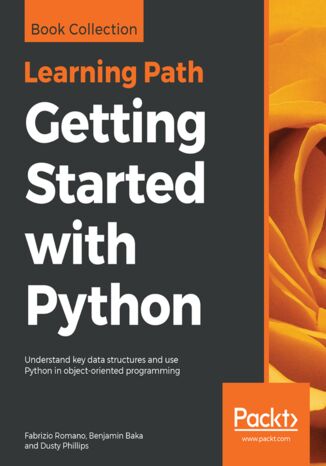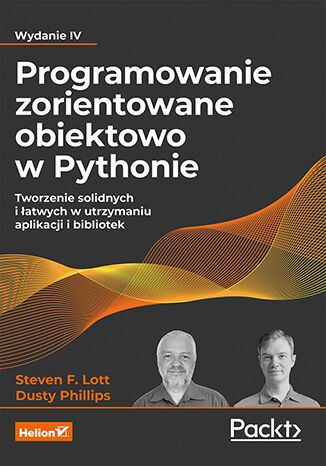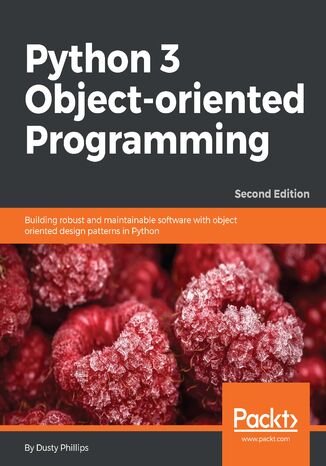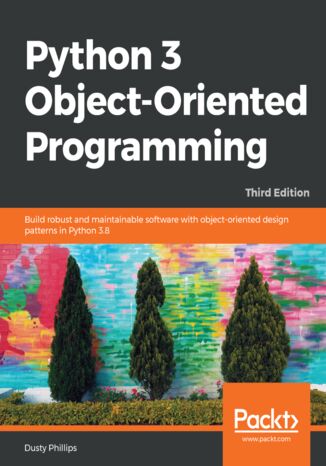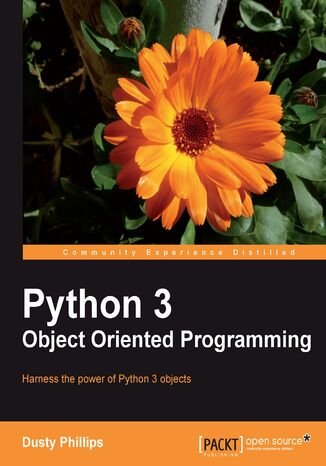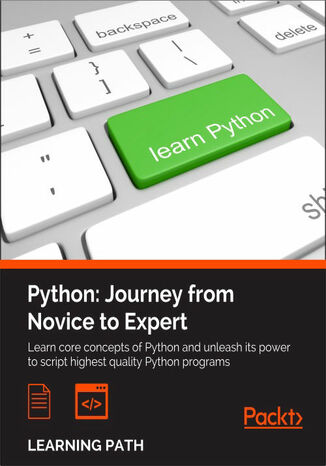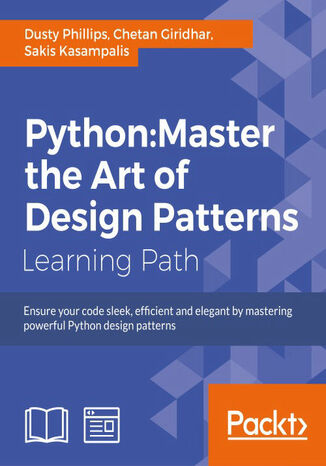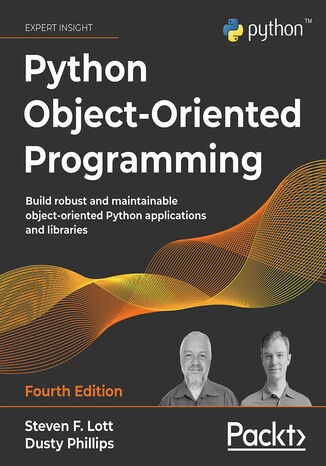Kategorien
E-Books
-
Wirtschaft
- Bitcoin
- Geschäftsfrau
- Coaching
- Controlling
- E-Business
- Ökonomie
- Finanzen
- Börse und Investitionen
- Persönliche Kompetenzen
- Computer im Büro
- Kommunikation und Verhandlungen
- Kleines Unternehmen
- Marketing
- Motivation
- Multimedia-Training
- Immobilien
- Überzeugung und NLP
- Steuern
- Sozialpolitik
- Handbȕcher
- Präsentationen
- Führung
- Public Relation
- Berichte, Analysen
- Geheimnis
- Social Media
- Verkauf
- Start-up
- Ihre Karriere
- Management
- Projektmanagement
- Personal (HR)
-
Für Kinder
-
Für Jugendliche
-
Bildung
-
Enzyklopädien, Wörterbücher
-
E-Presse
- Architektura i wnętrza
- Sicherheit und Gesundheit am Arbeitsplatz
- Biznes i Ekonomia
- Haus und Garten
- E-Business
- Ekonomia i finanse
- Esoterik
- Finanzen
- Persönliche Finanzen
- Unternehmen
- Fotografie
- Informatik
- HR und Gehaltsabrechnung
- Frauen
- Computer, Excel
- Buchhaltung
- Kultur und Literatur
- Wissenschaftlich und akademisch
- Umweltschutz
- meinungsbildend
- Bildung
- Steuern
- Reisen
- Psychologie
- Religion
- Landwirtschaft
- Buch- und Pressemarkt
- Transport und Spedition
- Gesundheit und Schönheit
-
Geschichte
-
Informatik
- Office-Programme
- Datenbank
- Bioinformatik
- IT Branche
- CAD/CAM
- Digital Lifestyle
- DTP
- Elektronik
- Digitale Fotografie
- Computergrafik
- Spiele
- Hacking
- Hardware
- IT w ekonomii
- Wissenschaftliche Pakete
- Schulbücher
- Computergrundlagen
- Programmierung
- Mobile-Programmierung
- Internet-Server
- Computernetzwerke
- Start-up
- Betriebssysteme
- Künstliche Inteligenz
- Technik für Kinder
- Webmaster
-
Andere
-
Fremdsprachen lernen
-
Kultur und Kunst
-
Lektüre
-
Literatur
- Anthologien
- Ballade
- Biografien und Autobiografien
- Für Erwachsene
- Drama
- Tagebücher, Memoiren, Briefe
- Epos
- Essay
- Science Fiction
- Felietonys
- Fiktion
- Humor, Satire
- Andere
- Klassisch
- Krimi
- Sachbücher
- Belletristik
- Mity i legendy
- Nobelpreisträger
- Kurzgeschichten
- Gesellschaftlich
- Okultyzm i magia
- Erzählung
- Erinnerungen
- Reisen
- Gedicht
- Poesie
- Politik
- Populärwissenschaftlich
- Roman
- Historischer Roman
- Prosa
- Abenteuer
- Journalismus
- Reportage
- Romans i literatura obyczajowa
- Sensation
- Thriller, Horror
- Interviews und Erinnerungen
-
Naturwissenschaften
-
Sozialwissenschaften
-
Schulbücher
-
Populärwissenschaft und akademisch
- Archäologie
- Bibliotekoznawstwo
- Filmwissenschaft
- Philologie
- Polnische Philologie
- Philosophie
- Finanse i bankowość
- Erdkunde
- Wirtschaft
- Handel. Weltwirtschaft
- Geschichte und Archäologie
- Kunst- und Architekturgeschichte
- Kulturwissenschaft
- Linguistik
- Literaturwissenschaft
- Logistik
- Mathematik
- Medizin
- Geisteswissenschaften
- Pädagogik
- Lehrmittel
- Populärwissenschaftlich
- Andere
- Psychologie
- Soziologie
- Theatrologie
- Teologie
- Theorien und Wirtschaftswissenschaften
- Transport i spedycja
- Sportunterricht
- Zarządzanie i marketing
-
Handbȕcher
-
Spielanleitungen
-
Professioneller und fachkundige Leitfaden
-
Jura
- Sicherheit und Gesundheit am Arbeitsplatz
- Geschichte
- Verkehrsregeln. Führerschein
- Rechtswissenschaften
- Gesundheitswesen
- Allgemeines. Wissenskompendium
- akademische Bücher
- Andere
- Bau- und Wohnungsrecht
- Zivilrecht
- Finanzrecht
- Wirtschaftsrecht
- Wirtschafts- und Handelsrecht
- Strafrecht
- Strafrecht. Kriminelle Taten. Kriminologie
- Internationales Recht
- Internationales und ausländisches Recht
- Gesundheitsschutzgesetz
- Bildungsrecht
- Steuerrecht
- Arbeits- und Sozialversicherungsrecht
- Öffentliches, Verfassungs- und Verwaltungsrecht
- Familien- und Vormundschaftsrecht
- Agrarrecht
- Sozialrecht, Arbeitsrecht
- EU-Recht
- Industrie
- Agrar- und Umweltschutz
- Wörterbücher und Enzyklopädien
- Öffentliche Auftragsvergabe
- Management
-
Führer und Reisen
- Afrika
- Alben
- Südamerika
- Mittel- und Nordamerika
- Australien, Neuseeland, Ozeanien
- Österreich
- Asien
- Balkan
- Naher Osten
- Bulgarien
- China
- Kroatien
- Tschechische Republik
- Dänemark
- Ägypten
- Estland
- Europa
- Frankreich
- Berge
- Griechenland
- Spanien
- Niederlande
- Island
- Litauen
- Lettland
- Mapy, Plany miast, Atlasy
- Miniführer
- Deutschland
- Norwegen
- Aktive Reisen
- Polen
- Portugal
- Andere
- Przewodniki po hotelach i restauracjach
- Russland
- Rumänien
- Slowakei
- Slowenien
- Schweiz
- Schweden
- Welt
- Türkei
- Ukraine
- Ungarn
- Großbritannien
- Italien
-
Psychologie
- Lebensphilosophien
- Kompetencje psychospołeczne
- zwischenmenschliche Kommunikation
- Mindfulness
- Allgemeines
- Überzeugung und NLP
- Akademische Psychologie
- Psychologie von Seele und Geist
- Arbeitspsychologie
- Relacje i związki
- Elternschafts- und Kinderpsychologie
- Problemlösung
- Intellektuelle Entwicklung
- Geheimnis
- Sexualität
- Verführung
- Aussehen ind Image
- Lebensphilosophien
-
Religion
-
Sport, Fitness, Diäten
-
Technik und Mechanik
Hörbücher
-
Wirtschaft
- Bitcoin
- Geschäftsfrau
- Coaching
- Controlling
- E-Business
- Ökonomie
- Finanzen
- Börse und Investitionen
- Persönliche Kompetenzen
- Kommunikation und Verhandlungen
- Kleines Unternehmen
- Marketing
- Motivation
- Immobilien
- Überzeugung und NLP
- Steuern
- Sozialpolitik
- Handbȕcher
- Präsentationen
- Führung
- Public Relation
- Geheimnis
- Social Media
- Verkauf
- Start-up
- Ihre Karriere
- Management
- Projektmanagement
- Personal (HR)
-
Für Kinder
-
Für Jugendliche
-
Bildung
-
Enzyklopädien, Wörterbücher
-
E-Presse
-
Geschichte
-
Informatik
-
Andere
-
Fremdsprachen lernen
-
Kultur und Kunst
-
Lektüre
-
Literatur
- Anthologien
- Ballade
- Biografien und Autobiografien
- Für Erwachsene
- Drama
- Tagebücher, Memoiren, Briefe
- Epos
- Essay
- Science Fiction
- Felietonys
- Fiktion
- Humor, Satire
- Andere
- Klassisch
- Krimi
- Sachbücher
- Belletristik
- Mity i legendy
- Nobelpreisträger
- Kurzgeschichten
- Gesellschaftlich
- Okultyzm i magia
- Erzählung
- Erinnerungen
- Reisen
- Poesie
- Politik
- Populärwissenschaftlich
- Roman
- Historischer Roman
- Prosa
- Abenteuer
- Journalismus
- Reportage
- Romans i literatura obyczajowa
- Sensation
- Thriller, Horror
- Interviews und Erinnerungen
-
Naturwissenschaften
-
Sozialwissenschaften
-
Populärwissenschaft und akademisch
- Archäologie
- Philosophie
- Wirtschaft
- Handel. Weltwirtschaft
- Geschichte und Archäologie
- Kunst- und Architekturgeschichte
- Kulturwissenschaft
- Literaturwissenschaft
- Mathematik
- Medizin
- Geisteswissenschaften
- Pädagogik
- Lehrmittel
- Populärwissenschaftlich
- Andere
- Psychologie
- Soziologie
- Teologie
- Zarządzanie i marketing
-
Handbȕcher
-
Professioneller und fachkundige Leitfaden
-
Jura
-
Führer und Reisen
-
Psychologie
- Lebensphilosophien
- zwischenmenschliche Kommunikation
- Mindfulness
- Allgemeines
- Überzeugung und NLP
- Akademische Psychologie
- Psychologie von Seele und Geist
- Arbeitspsychologie
- Relacje i związki
- Elternschafts- und Kinderpsychologie
- Problemlösung
- Intellektuelle Entwicklung
- Geheimnis
- Sexualität
- Verführung
- Aussehen ind Image
- Lebensphilosophien
-
Religion
-
Sport, Fitness, Diäten
-
Technik und Mechanik
Videokurse
-
Datenbank
-
Big Data
-
Biznes, ekonomia i marketing
-
Cybersicherheit
-
Data Science
-
DevOps
-
Für Kinder
-
Elektronik
-
Grafik / Video / CAX
-
Spiele
-
Microsoft Office
-
Entwicklungstools
-
Programmierung
-
Persönliche Entwicklung
-
Computernetzwerke
-
Betriebssysteme
-
Softwaretest
-
Mobile Geräte
-
UX/UI
-
Web development
-
Management
Podcasts
Fabrizio Romano, Benjamin Baka, Dusty Phillips
This Learning Path helps you get comfortable with the world of Python. It starts with a thorough and practical introduction to Python. You’ll quickly start writing programs, building websites, and working with data by harnessing Python's renowned data science libraries. With the power of linked lists, binary searches, and sorting algorithms, you'll easily create complex data structures, such as graphs, stacks, and queues. After understanding cooperative inheritance, you'll expertly raise, handle, and manipulate exceptions. You will effortlessly integrate the object-oriented and not-so-object-oriented aspects of Python, and create maintainable applications using higher level design patterns. Once you’ve covered core topics, you’ll understand the joy of unit testing and just how easy it is to create unit tests.By the end of this Learning Path, you will have built components that are easy to understand, debug, and can be used across different applications.This Learning Path includes content from the following Packt products:• Learn Python Programming - Second Edition by Fabrizio Romano• Python Data Structures and Algorithms by Benjamin Baka• Python 3 Object-Oriented Programming by Dusty Phillips
Steven F. Lott, Dusty Phillips
Python zasłużenie cieszy się ogromną popularnością. To język, który może służyć do wielu celów, szczególnie do szybkiego tworzenia niewielkich, wyspecjalizowanych programów. Projektowanie bardziej rozbudowanego, wyrafinowanego oprogramowania też jest możliwe, wymaga jednak zdobycia kilku ważnych umiejętności. Bardzo dobrym pomysłem okazuje się zastosowanie w programowaniu w Pythonie podejścia zorientowanego obiektowo. Tak tworzony kod jest czytelny, solidny, łatwy w rozbudowie i o wiele efektywniejszy w działaniu. Oto przyjazny przewodnik dla programistów Pythona, wyczerpująco wyjaśniający wiele zagadnień programowania obiektowego, takich jak dziedziczenie, kompozycja, polimorfizm, tworzenie klas i struktur danych. W książce szczegółowo omówiono zagadnienia obsługi wyjątków, testowania kodu i zastosowania technik programowania funkcyjnego. Opisano też dwa potężne zautomatyzowane systemy testowe: unittest i pytest. Zaprezentowano tematykę utrzymania złożonego oprogramowania napisanego w sposób zorientowany obiektowo, a także podano wskazówki odnoszące się do jego rozbudowy. Ważną częścią przewodnika jest omówienie zasad programowania współbieżnego we współczesnym Pythonie. Co ważne, poszczególne zagadnienia zostały zilustrowane diagramami UML, czytelnymi przykładami i studiami przypadków. W książce między innymi: kiedy korzystać z technik obiektowych implementacja obiektów i mechanizmu dziedziczenia w Pythonie stosowanie wyjątków, a także tworzenie testów jednostkowych i integracyjnych ważniejsze wzorce projektowe i ich implementacja w Pythonie statyczne typowanie dynamicznego kodu programowanie współbieżne przy użyciu asyncio Chcesz tworzyć solidny kod? Zorientuj się na obiekty!
Python 3 is more versatile and easier to use than ever. It runs on all major platforms in a huge array of use cases. Coding in Python minimizes development time and increases productivity in comparison to other languages. Clean, maintainable code is easy to both read and write using Python's clear, concise syntax.Object-oriented programming is a popular design paradigm in which data and behaviors are encapsulated in such a way that they can be manipulated together. Many modern programming languages utilize the powerful concepts behind object-oriented programming and Python is no exception.Starting with a detailed analysis of object-oriented analysis and design, you will use the Python programming language to clearly grasp key concepts from the object-oriented paradigm. This book fully explains classes, data encapsulation, inheritance, polymorphism, abstraction, and exceptions with an emphasis on when you can use each principle to develop well-designed software.You'll get an in-depth analysis of many common object-oriented design patterns that are more suitable to Python's unique style. This book will not just teach Python syntax, but will also build your confidence in how to program.You will also learn how to create maintainable applications by studying higher level design patterns. Following this, you'll learn the complexities of string and file manipulation, and how Python distinguishes between binary and textual data. Not one, but two very powerful automated testing systems will be introduced in the book. After you discover the joy of unit testing and just how easy it can be, you'll study higher level libraries such as database connectors and GUI toolkits and learn how they uniquely apply object-oriented principles. You'll learn how these principles will allow you to make greater use of key members of the Python eco-system such as Django and Kivy.This new edition includes all the topics that made Python 3 Object-oriented Programming an instant Packt classic. It's also packed with updated content to reflect recent changes in the core Python library and covers modern third-party packages that were not available on the Python 3 platform when the book was first published.
Object-oriented programming (OOP) is a popular design paradigm in which data and behaviors are encapsulated in such a way that they can be manipulated together. This third edition of Python 3 Object-Oriented Programming fully explains classes, data encapsulation, and exceptions with an emphasis on when you can use each principle to develop well-designed software.Starting with a detailed analysis of object-oriented programming, you will use the Python programming language to clearly grasp key concepts from the object-oriented paradigm. You will learn how to create maintainable applications by studying higher level design patterns. The book will show you the complexities of string and file manipulation, and how Python distinguishes between binary and textual data. Not one, but two very powerful automated testing systems, unittest and pytest, will be introduced in this book. You'll get a comprehensive introduction to Python's concurrent programming ecosystem.By the end of the book, you will have thoroughly learned object-oriented principles using Python syntax and be able to create robust and reliable programs confidently.
Object Oriented Programming is a very important aspect of modern programming languages. The basic principles of Object Oriented Programming are relatively easy to learn. Putting them together into working designs can be challenging.This book makes programming more of a pleasure than a chore using powerful Python 3 object-oriented features of Python 3. It clearly demonstrates the core OOP principles and how to correctly implement OOP in Python. Object Oriented Programming ranks high in importance among the many models Python supports. Yet, many programmers never bother learning the powerful features that make this language object oriented.The book teaches when and how OOP should be correctly applied. It emphasizes not only the simple syntax of OOP in Python, but also how to combine these objects into well-designed software.This book will introduce you to the terminology of the object-oriented paradigm, focusing on object-oriented design with step-by-step examples. It will take you from simple inheritance, one of the most useful tools in the object-oriented programmer's toolbox, all the way through to cooperative inheritance, one of the most complicated. You will be able to raise, handle, define, and manipulate exceptions.You will be able to integrate the object-oriented and the not-so-object-oriented aspects of Python. You will also be able to create maintainable applications by studying higher level design patterns. You'll learn the complexities of string and file manipulation, and how Python distinguishes between binary and textual data. Not one, but two very powerful automated testing systems will be introduced to you. You'll understand the joy of unit testing and just how easy they are to create. You'll even study higher level libraries such as database connectors and GUI toolkits and how they apply object-oriented principles.
Python: Journey from Novice to Expert. Journey from Novice to Expert
Fabrizio Romano, Dusty Phillips, Rick van Hattem
Python is a dynamic and powerful programming language, having its application in a wide range of domains. It has an easy-to-use, simple syntax, and a powerful library, which includes hundreds of modules to provide routines for a wide range of applications, thus making it a popular language among programing enthusiasts.This course will take you on a journey from basic programming practices to high-end tools and techniques giving you an edge over your peers. It follows an interesting learning path, divided into three modules. As you complete each one, you’ll have gained key skills and get ready for the material in the next module.The first module will begin with exploring all the essentials of Python programming in an easy-to-understand way. This will lay a good foundation for those who are interested in digging deeper. It has a practical and example-oriented approach through which both the introductory and the advanced topics are explained. Starting with the fundamentals of programming and Python, it ends by exploring topics, like GUIs, web apps, and data science.In the second module you will learn about object oriented programming techniques in Python. Starting with a detailed analysis of object-oriented technique and design, you will use the Python programming language to clearly grasp key concepts from the object-oriented paradigm. This module fully explains classes, data encapsulation, inheritance, polymorphism, abstraction, and exceptions with an emphasis on when you can use each principle to develop well-designed software.With a good foundation of Python you will move onto the third module which is a comprehensive tutorial covering advanced features of the Python language. Start by creating a project-specific environment using venv. This will introduce you to various Pythonic syntax and common pitfalls before moving onto functional features and advanced concepts, thereby gaining an expert level knowledge in programming and teaching how to script highest quality Python programs.
Python: Master the Art of Design Patterns. Click here to enter text
Dusty Phillips, Chetan Giridhar, Sakis Kasampalis
Python is an object-oriented scripting language that is used in everything from data science to web development. Known for its simplicity, Python increases productivity and minimizes development time. Through applying essential software engineering design patterns to Python, Python code becomes even more efficient and reusable from project to project. This learning path takes you through every traditional and advanced design pattern best applied to Python code, building your skills in writing exceptional Python. Divided into three distinct modules, you’ll go from foundational to advanced concepts by following a series of practical tutorials.Start with the bedrock of Python programming – the object-oriented paradigm. Rethink the way you work with Python as you work through the Python data structures and object-oriented techniques essential to modern Python programming. Build your confidence as you learn Python syntax, and how to use OOP principles with Python tools such as Django and Kivy.In the second module, run through the most common and most useful design patterns from a Python perspective. Progress through Singleton patterns, Factory patterns, Façade patterns and more all with detailed hands-on guidance. Enhance your professional abilities in in software architecture, design, and development.In the final module, run through the more complex and less common design patterns, discovering how to apply them to Python coding with the help of real-world examples. Get to grips with the best practices of writing Python, as well as creating systems architecture and troubleshooting issues.This Learning Path combines some of the best that Packt has to offer in one complete, curated package. It includes content from the following Packt products:? Python 3 Object-Oriented Programming - Second Edition by Dusty Phillips? Learning Python Design Patterns - Second Edition by Chetan Giridhar? Mastering Python Design Patterns by Sakis Kasampalis
Steven F. Lott, Dusty Phillips
Object-oriented programming (OOP) is a popular design paradigm in which data and behaviors are encapsulated in such a way that they can be manipulated together. Python Object-Oriented Programming, Fourth Edition dives deep into the various aspects of OOP, Python as an OOP language, common and advanced design patterns, and hands-on data manipulation and testing of more complex OOP systems. These concepts are consolidated by open-ended exercises, as well as a real-world case study at the end of every chapter, newly written for this edition. All example code is now compatible with Python 3.9+ syntax and has been updated with type hints for ease of learning.Steven and Dusty provide a comprehensive, illustrative tour of important OOP concepts, such as inheritance, composition, and polymorphism, and explain how they work together with Python’s classes and data structures to facilitate good design. In addition, the book also features an in-depth look at Python’s exception handling and how functional programming intersects with OOP. Two very powerful automated testing systems, unittest and pytest, are introduced. The final chapter provides a detailed discussion of Python's concurrent programming ecosystem.By the end of the book, you will have a thorough understanding of how to think about and apply object-oriented principles using Python syntax and be able to confidently create robust and reliable programs.

